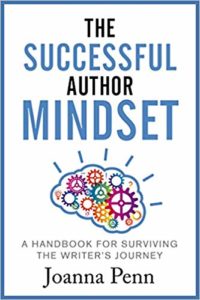by Tracy Stanley
Writing a thesis is a huge accomplishment, and in today’s guest post Tracy Stanley discusses how all the work you put into that project doesn’t have to end once the thesis is submitted to your academic advisors. As always, your writing can be turned into more than one asset; it’s possible to turn that thesis into something you can sell.
I spent four years researching and writing for a Ph.D. on the topic of How Work Environments Contribute to Creative Behaviours and Employee Engagement.
When submitted it was 103,850 words and I knew that no more than six people in the world would read it. As a result, it was unlikely to have an impact on anything. Yes, I’d written shorter academic articles, but these were also designed for a mainly academic audience.
I wanted to share what I’d learned to a different audience, to managers, and to share the main messages in my own voice, not my carefully restrained academic voice.
Starting was hard
The journey took me a couple of years. Like many, I suffered from the Jekyll and Hyde phenomena of thinking:
Who am I to write this book?
to
Of course, I can write a book.
This imposter syndrome plagues many writers and I highly recommend you read, The Successful Author Mindset by Joanna Penn before starting the journey as it will help you to confront your demons.
Next, write a book proposal that you might send to an agent or publisher, (even if you don’t and choose to take the self-publishing route). Think of your proposal as a pitch – so use marketing language to communicate its value in terms of content and your value as the subject matter expert.
The proposal will help you to organize your thinking and to focus on your audience and their pain points.
The book proposal should include:
- Problems the book addresses for a specific market;
- Value that will be provided to the reader in terms of pain points addressed;
- A proposed title;
- Evidence that there is a need for the book based on market research. This should come from an analysis of similar books in the marketplace and from talking with people impacted by the problem you are solving; and a
- Contents page.
As you did with your Ph.D., write your contents page as soon as you can. This will help to organize your thinking. We know that it will probably change, but it’s a great starting point.
Having written a Ph.D., you are unlikely to suffer from a lack of content. Indeed you may be able to repurpose your research into several books. I could see that I could split my thesis fairly easily into two books around the themes of employee engagement and creativity.
I suggest that you look at your Abstract and Contributions of the Study chapters in your thesis to glean key areas you want to draw on in your book. But do not do a direct copy and paste as you will be copying your academic voice as well.
Lessons learned from the journey
Do you find these posts helpful and informative? Please CLICK HERE to help keep us going!


